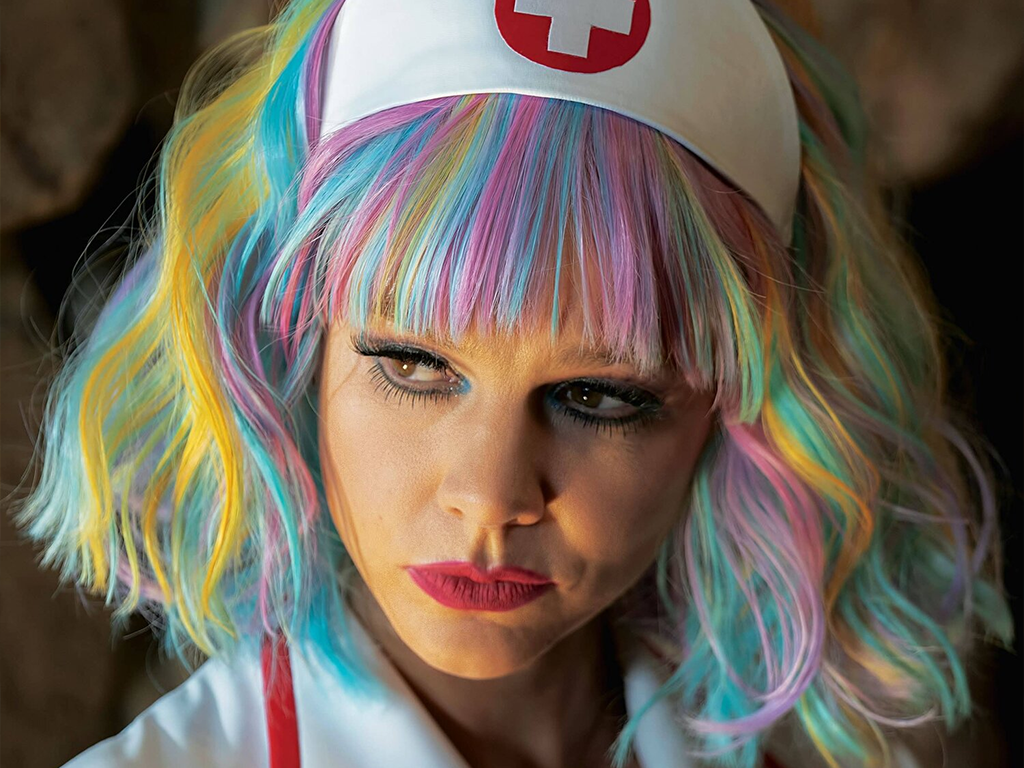Vibe:
"Promising Young Woman" (2020) is a fast-paced revenge film with thriller and romantic comedy elements thrown in for good measure. It's beautiful to look at and never boring, but ultimately disappointing once you think about it more deeply and realize how little it actually has to say. It takes a wild swing -- especially for a directorial debut -- and although it doesn't pay off, I appreciate that Emerald Fennell tried to make something provocative.
Best time to watch:
Wait until the film is less than $5 on VOD or available on a streaming service. Watching Bo Burnham and Carey Mulligan dance to Paris Hilton's "Stars are Blind" in the middle of a pharmacy is fun enough to justify a small charge. If you're looking for a double feature, I recommend pairing it with Kitty Green's (far superior but sadly less talked about) "The Assistant" (2019). Both films are discussed on this episode of the Seventh Row podcast.
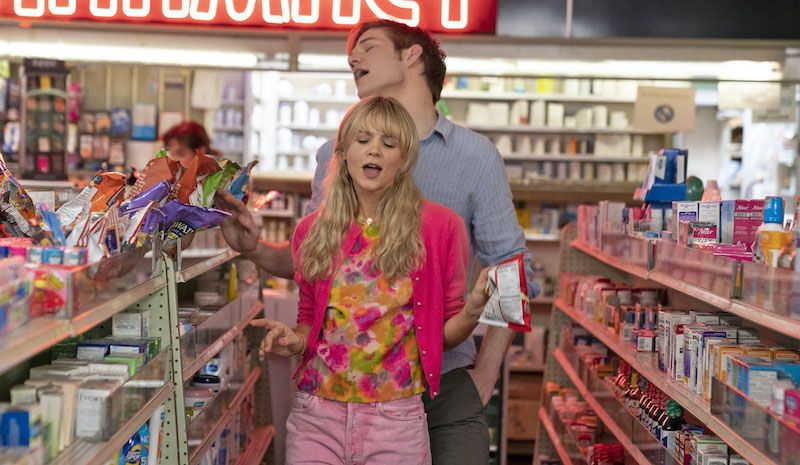
Worst time to watch:
Absolutely do not see this in theaters. I don't care if you're wearing a mask!
Where to watch:
"Promising Young Woman" is in theaters 😡 on Christmas day. You should be able to stream it on VOD in early January.
Quick summary:
The press kit is better at vague summary than I am:
Everyone said Cassie (Carey Mulligan) was a promising young woman ... until a mysterious event abruptly derailed her future. But nothing in Cassie's life is what it appears to be: she's wickedly smart, tantalizingly cunning, and she's living a secret double life by night. Now, an unexpected encounter is about to give Cassie a chance to right the wrongs of the past.
Thoughts:
When the film opens, we see Cassie (Carrie Mulligan) slumped over on a leather banquette in a club, drawing lots of attention from a nearby group of business bros. One of them (Adam Brody) approaches her and, upon realizing that her phone is nowhere to be found, offers her a ride home. They end up at his apartment where he plies her with more liquor and eventually pushes her limp body onto his bed. After he pulls off her underwear, she calmly and soberly asks him what he's doing. We find out that this is Cassie's raison d'etre. She hangs out at bars, pretends to be drunk, goes home with a guy and then ... does something to make them regret their behavior? The film isn't entirely clear about it, and thus arises my first big problem.
Do the different-colored inks in Cassie's revenge notebook indicate levels of severity? Is she killing some of these men? Injuring them? Simply giving them a stern lecture and then walking away? I don't need an explicit explanation for everything, but understanding Cassie's psychology is important. She's not a mythical superhero figure, equipped with the Sword of Protection. In the world of the film, she's a seemingly ordinary woman struggling with the immense trauma of her friend Nina's public rape and subsequent suicide. Nina (and more broadly, rape culture) is the reason why Cassie dropped out of medical school.
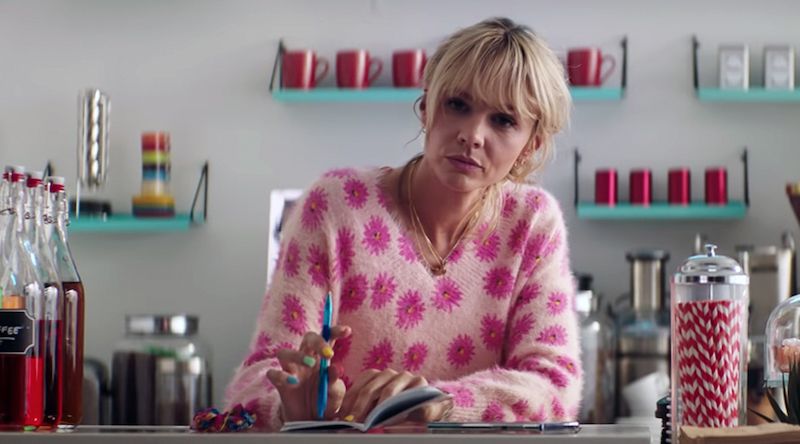
Cassie's trauma is serious shit, and it's clear that she's not dealing with it well. The rage she feels is consuming her life, causing her to "waste her potential" by working at a coffee shop and vaguely punishing random men. This could all be fine if the film approached it with a different tone. What I find distasteful is the fact that we're supposed to root for Cassie and view her pointless crusade as badass. Cassie is John Wick-adjacent, risking her own life to avenge a friend.
Like John, she's working through the pain of loss by directing her rage toward those responsible (either directly or indirectly). The first big difference is that Cassie is trying to fight an entire system by targeting members of a specific sex (a misdirected effort), while John is simply trying to kill the motherfuckers that deigned to harm his puppy (plus ~100 other people). The second big difference is that the only time we see violence in "Promising Young Woman," it's directed towards women; there is no catharsis for the viewer. You might remember Coralie Fargeat's "Revenge" (2018), a film that used violence to brilliantly excoriate rape culture. In Fennell's film, you don't get to see a scummy guy crawling around in a pool of his own blood and guts. There is no triumphant ending, only depressing reality dusted with pink glitter.
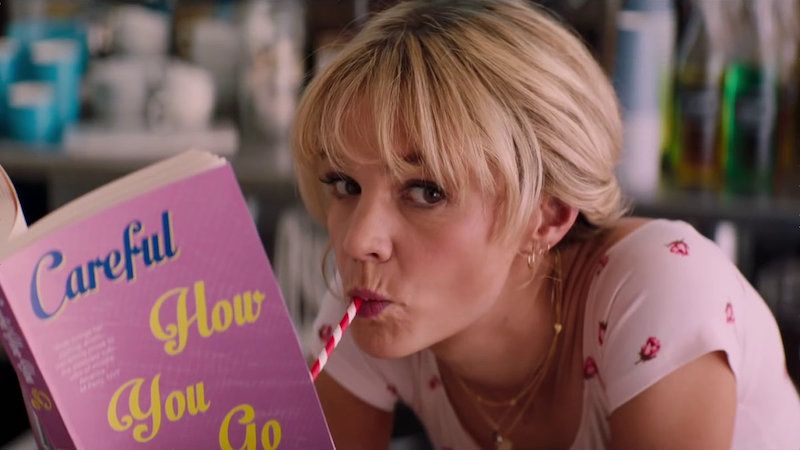
Some would argue Fennell's point is that the world is a cruel place for women and should be depicted as such. Female revenge is illusory because the system makes it impossible. If that's true, why end on a Barbie pink winky face and blaring pop song? Why spend time making us root for a damaged character who makes questionable decisions and doesn't even get to triumph in the end? What message does that convey?
The film wants to exist on two levels: as 1) an epic tale of revenge that leaves the audience cheering and 2) a bleak reminder that enacting "justice" often involves a loss of identity or life for women. Both levels lack nuance and paint very complex, layered problems as black and white. Genre films can sometimes pull off this stark dichotomy (see the aforementioned "Revenge"), but it's much trickier to do with a film set in a world that mirrors reality and dips a toe into several genres.
It's hard to ignore the similarities between Cassie and Veronica Mars (Kristen Bell), a parallel that Jourdain Searles mentions in her review for Bitch Magazine. Almost all of the problems I laid out in my "Veronica Mars" S4 review also apply to "Promising Young Woman." Casting Chris Lowell, aka Piz, as Al Monroe, the man responsible for Nina's rape (among other crimes), further encourages the comparison. Cassie and Veronica are both obsessed with being tough and serving up justice, no matter the mounting personal toll that it takes. They try to find happiness/normalcy via romantic relationships (which is especially problematic in the case of "PYW") but are quickly stymied. Neither woman thrives in the end.
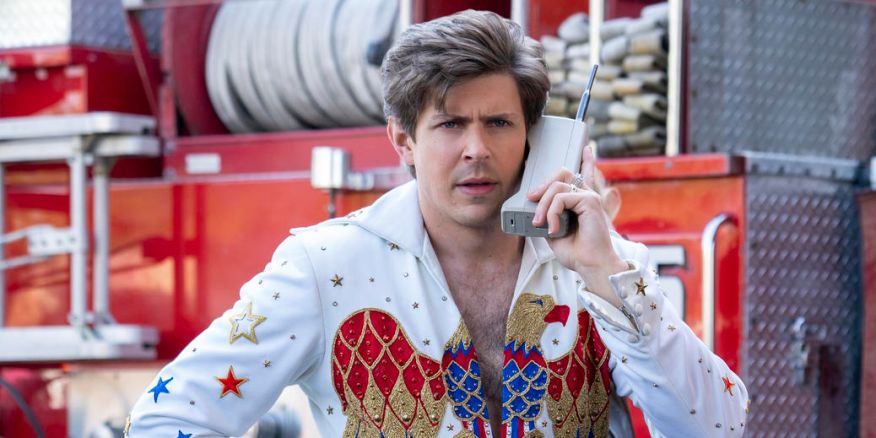
Who are these stories for and why is society drawn to them? Would people be as hyped on "PYW" if it wasn't dunked in glitter and marketed to the type of "feminists" who are concerned with looks over content? If it had something bold and interesting to say, I might praise this Trojan horse strategy. After sitting through ~2 hours of faux femininity wrapped in a candy shell, I'm desperate for something substantial.
Stray Observations:
- The film's soundtrack contains some fun covers, like Anthony Willis' string rendition of Britney Spears' "Toxic" and DeathbyRomy's take on The Weather Girls' "It's Raining Men."
- A man is an asshole if he does any of the following: wears a fedora, gives a laudatory speech about David Foster Wallace, or serves kumquat liqueur. True in the world of this movie and in real life.
- Did you spot Emerald Fennell in the "Blowjob lips" tutorial that Cassie watches on YouTube?
- Cassie's parents watch "The Night of the Hunter" (Laughton, 1955), a film about a serial killer who punishes women for their promiscuity. I always appreciate a good movie-within-a-movie reference.
- I've been watching "Euphoria" for the first time (I know, I know) and am impressed with how accurately it depicts teen sexuality and rape culture. Like "Promising Young Woman," it is heavily stylized but not at the expense of character development.
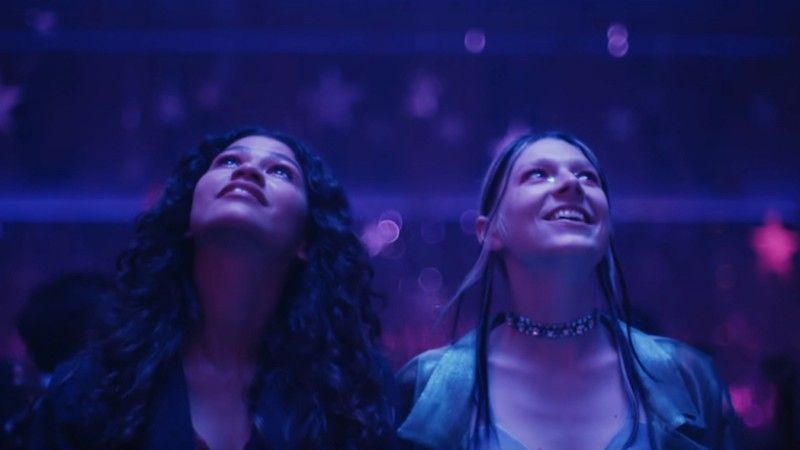
- I'm mad at myself for spending more time thinking about this movie, but someone needed to bump down its 92% Rotten Tomatoes score.
- I wish they gave Laverne Cox something to actually do.
- I detest the scene with Alfred Molina's character, a lawyer who pressured Nina to cease legal action. For whatever reason, Cassie accepts his apology without questioning it.
- A friendly reminder to check out the 7R podcast episode where Orla, Alex, and I really dive into the many reasons why this film didn't work. We discuss Bo Burnham's character arc, all of the loose threads that never get developed, and our disdain for Cassie's plan to enact revenge by screwing over other women.

